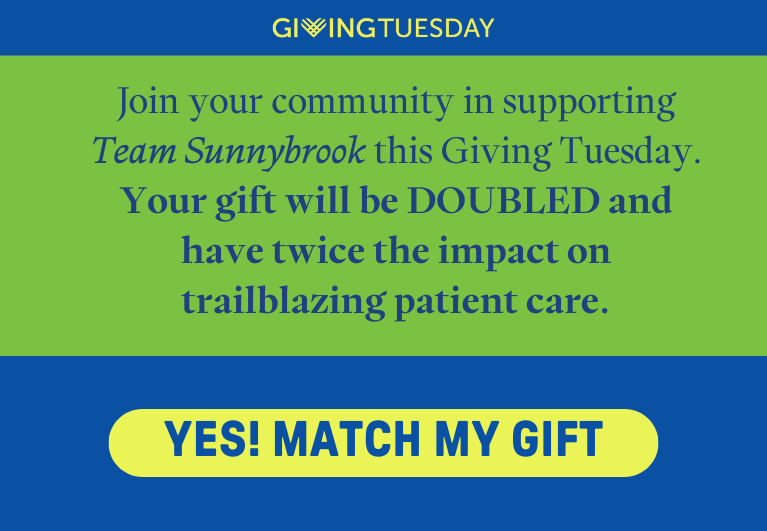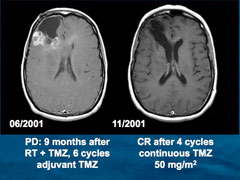Brain cancer patients provided new hope with altering drug dosage
A new treatment that involves a continuous daily dose of a currently-used chemotherapy medication provides a promising new strategy for patients with the most common and aggressive form of brain cancer.
"The RESCUE study demonstrated that more continuous treatment with the drug Temodal (TMZ) is a valuable therapeutic option for patients with recurrent glioblastoma multiforme (GBM)," says Dr. James Perry, Head of the Division of Neurology at Sunnybrook. "The trial results showed an increase in both six-month and one-year progression-free survival of patients undergoing chemotherapy, with excellent tolerability of the dosage, and minimal side effects."
"TMZ is currently the gold standard treatment for GBM and this new data supports our continued use of it in patients with recurrent GBM," adds Dr. Perry. "We are continually challenging ourselves to come up with medical solutions that will help patients with GBM to have a longer, and more satisfying life."
Temozolomide (Temodal or TMZ) has been used in the treatment of recurrent or progressive brain cancers GBM and anaplastic astrocytoma. It is the only chemotherapy drug that improves both overall and progression free survival for newly diagnosed patients with GBM.
GBM is the most common and aggressive of the primary brain tumours; accounting for approximately 40 per cent of all brain tumours. Each year, more than 2,000 Canadians are diagnosed with brain cancer. New cases are on the rise; diagnosis is increasing by two per cent per year, and recurrence is common after treatment.










